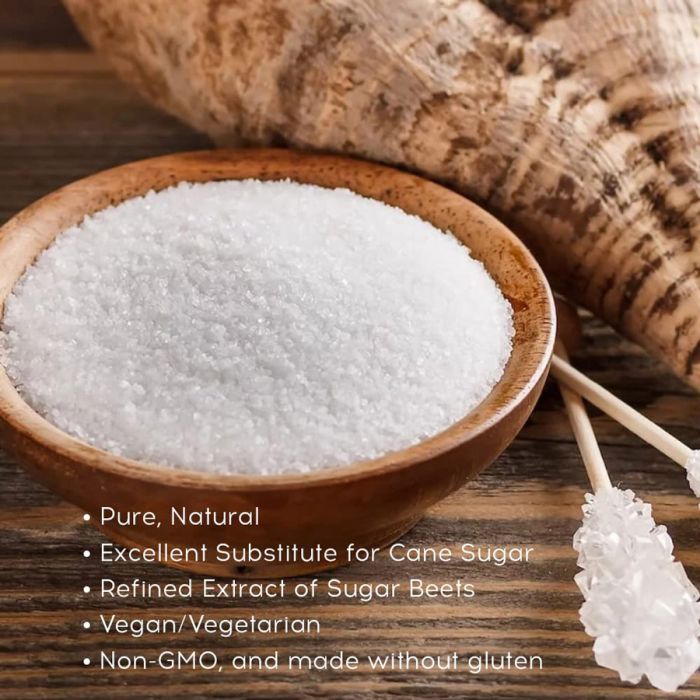The sourcing of beet sugar vs cane sugar affects eco-friendliness in the sugar industry.
The sourcing of beet sugar vs cane sugar affects eco-friendliness in the sugar industry.
Blog Article
Discover the Uses and Perks of Beet Sugar Vs Cane Sugar in Your Daily Diet Plan
Checking out the distinctive top qualities of beet and cane sugar exposes more than just their sweetening abilities; it highlights their unique effect on wellness and cookeries. Beet sugar, recognized for its subtle flavor, is usually preferred in fragile treats, whereas cane sugar, with its tip of molasses, includes splendor to robust dishes. Each kind holds its very own dietary account and glycemic ramifications, inviting a deeper understanding of their duties in a well balanced diet and lasting usage methods.
Beginning and Production Processes of Beet and Cane Sugar

The distinctive climates and soil types needed for expanding sugar beetroots and sugarcane add to distinctions in their growing practices and geographical distribution, influencing the business economics and sustainability of their manufacturing. beet sugar vs cane sugar.
Nutritional Contrast In Between Beet Sugar and Cane Sugar
In spite of stemming from various plants, beet sugar and cane sugar are nutritionally really similar, both mainly including sucrose. Each gives about 4 calories per gram, converting to roughly 16 calories per teaspoon. Structurally, both sugars are composed of about 99.95% sucrose, with minimal quantities of other substances like moisture and trace element, which do not dramatically alter their nutritional profiles.

Eventually, when selecting in between beet sugar and cane sugar based upon nutritional content alone, both offer identical benefits and disadvantages as they are basically forms of the very same particle-- sucrose, giving quick energy without various other nutrients.
Influence on Health And Wellness: Glycemic Index and Caloric Material
Discovering better right into the impacts of beet sugar and cane sugar on health, it is important to consider their glycemic index and caloric content. The glycemic index (GI) of both beet and cane sugar is around 65, categorizing them as high-GI foods, which can trigger fast spikes in blood glucose levels.
Each kind of sugar contains around 4 calories per gram, making their caloric web content equivalent. For those keeping track of calorie consumption, particularly when taking care of weight or metabolic wellness problems, understanding this equivalence is essential (beet sugar vs cane sugar). Too much usage of any type of high-calorie, high-GI food can add to health and wellness concerns such as obesity, heart condition, and insulin resistance.
Environmental and Economic Factors To Consider of Sugar Manufacturing
Beyond health effects, the production of beet and hop over to these guys cane sugar likewise increases substantial ecological and economic issues. Sugar beet growing tends to call for cooler environments and has a lower geographical impact compared to sugar cane, which flourishes in tropical areas. Both crops are intensive in terms of water usage and land occupation, potentially leading to logging and water deficiency. Financially, the international sugar market is highly volatile, affected by adjustments in global trade policies and aids. Lots of countries incentivize sugar production with financial assistance, skewing market value and influencing small farmers negatively.
Additionally, the use of chemicals and plant foods in both beet and cane sugar cultivation can lead to dirt deterioration and contamination, more affecting biodiversity and neighborhood water bodies (beet sugar vs cane sugar). The choice in between cultivating sugar beet or cane usually rests on neighborhood environmental problems and economic variables, making the sustainability of sugar manufacturing a complicated concern
Culinary Applications and Taste Differences
While the ecological and financial elements of sugar manufacturing are indeed substantial, the choice in between beet and cane sugar also influences cooking applications and taste accounts. Beet sugar, stemmed from the sugar beet plant, is understood for its incredibly neutral taste. This makes it a flexible active ingredient in baking, where it does not alter the flavor of various other elements. It dissolves swiftly and is suitable for use in cakes, cookies, and pastries.
Walking stick sugar, drawn out from sugarcane, typically preserves molasses traces, which give an unique richness and deepness. This minor molasses flavor boosts the complexity of baked products, sauces, and sauces. It is specifically favored in items where a caramel undertone is desired, such as in brownies or gingerbread. Furthermore, the minor variant in wetness material in between beet and cane sugar can impact the appearance and consistency of dishes, making cane sugar a recommended choice for particular redirected here recipes that gain from its special properties.

Final Thought
In final thought, both beet and cane sugar have distinct beginnings and production processes, why not look here supplying comparable dietary accounts with small distinctions in sodium material and taste. While their influence on health and wellness, specifically relating to glycemic index and calories, is comparable, the selection between them usually comes down to environmental, financial elements, and particular culinary requirements. Comprehending these elements can guide consumers in making informed choices that align with their health objectives and flavor preferences.
Report this page